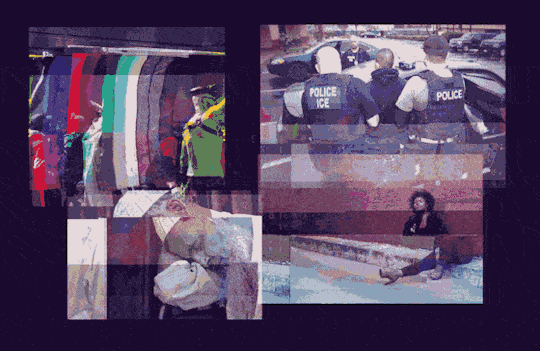Berkeley Claims To Be A Progressive City But It’s Not Clear If They’ll Ban Facial Recognition.

As momentum to ban facial recognition technology in the Bay Area grows, police influence might get in the way of progress. Fight for the Future plans to crowdfund a billboard exposing any council members who block the proposal.
City Council Members in Oakland will vote tonight on an ordinance ordinance to ban the city from buying and using the technology, while . Tomorrow, the Public Safety Committee of the Berkeley City Council will meet (Wednesday, July 17 at 12pm at City Hall) to finalize their own ordinance that would prohibit the city from using facial recognition technology or data obtained from its use.
While the proposed ban in Oakland is expected to pass following its 4-0 clearance of the City Council’s Public Safety Committee last month, local law enforcement hopes to saddle Berkeley’s ban with exceptions that would render it meaningless.
If the Berkeley ban is stalled, Fight for the Future will launch a crowdfunded billboard in downtown Berkeley to highlight the Council Members who prevent this ban from happening. The group has previously crowdfunded billboards targeting lawmakers across the country over issues like net neutrality and NSA surveillance.
Fight for the Future is calling on the people of Berkeley to attend tomorrow’s Committee meeting and voice their support for the ban, and for the Committee to send the Ordinance ordinance to the full Council without any watered down amendments.
“The proposal on the table in Berkeley is clear, direct, and effective,” said Evan Greer, Deputy Director at Fight for the Future, (pronouns: she/her). “It’s a critical line of defense against invasive surveillance. But police are pushing carve-outs for all different kinds of – you guessed it – invasive surveillance. They’re trying to make it a self-negating law so they can monitor and control the population with impunity.”
“The people of Berkeley know better,” she added. “They support a ban, and they won’t allow the Council to pass an empty shell of a law that doesn’t do what it’s intended to do. You don’t let Big Brother negotiate how much oppressive tech he gets. The answer is: he gets none.” Citing the Council’s responsibility to give Berkeley an ordinance that makes sense, Greer promised a billboard featuring the faces of dissenting council members in the event of a failed or diluted law.
Echoing Greer, Brian Hofer, Executive Director of Secure Justice and Chair of Oakland’s Privacy Advisory Commission, said, “If we’re going to call ourselves the home of the resistance, then East Bay electeds need to start voting like it.”
Earlier this year, San Francisco led the fight against facial recognition when it passed a citywide ban by a 10-1 margin. More recently, the City Council of Somerville, MA voted unanimously to ban all public uses of the technology.
As Oakland’s vote approaches, City Council President Rebecca Kaplan, an honors graduate of MIT, said, “I welcome emerging technologies that improve our lives and facilitate city governance, but when multiple studies show a technology is flawed, biased, and is having unprecedented, chilling effects to our freedom of speech and religion, we have to take a stand. It is important to build trust and good relationships between community and police and to remedy racial bias, however this flawed technology could make those problems worse. The right to privacy and the right to equal protection are fundamental and we cannot surrender them.”
“Face surveillance technology is the most radical tool developed in my lifetime, and it will permanently and negatively alter the balance between the government and the governed,” Hofer observed. “Thankfully city council members like Oakland’s Rebecca Kaplan and Berkeley’s Kate Harrison get it.”
Council Member Kate Harrison, sponsor of the proposal in Berkeley, worries that facial recognition could be used to track people “en masse” and weaponized “against [whole] groups.” Elsewhere in the country, facial recognition bans enjoy wide popular support, and recently even garnered rare bipartisan agreement in Congress.
However, according to Greer and Fight for the Future, there is a very real risk that the police lobby will make a national embarrassment of Berkeley. “Berkeley is considered progressive,” she said. “It will want to be on the right side of history with this. It can’t afford not to be.”
